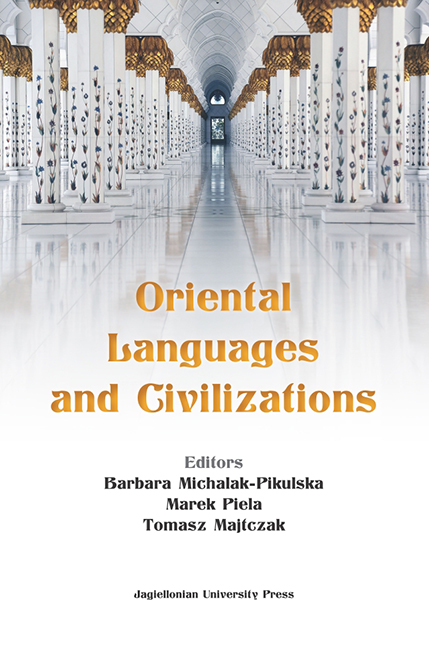What’s in a poem? Some remarks on ClassicalJapanese “names of things”
Published online by Cambridge University Press: 06 November 2021
Summary
Abstract
The paper presents a rather marginal type of ClassicalJapanese poems called mono nona (or,butsumei), i.e. ‘names of things,’ whichcontain an expression deliberately hidden in theirtext. It discusses various kinds of concealed words,phrases, Sino-Japanese elements, sentences and wordseries. Popular in the Heian period, these poems maynow constitute a significant source of interestinglinguistic information not easily availableotherwise (e.g. rare lexical items or unusual usageof certain grammatical morphemes). All examples aretaken from two imperial anthologies of Japanesepoetry, Kokin waka shū and Shūiwaka shū, and are translated into Englishand Polish.
Keywords: mono no na(butsumei), names ofthings, Kokinshū,Shūishū
In Classical Japanese poetry, waka 和歌, there is a –rather marginal – type of poems called mono no na 物の名 or butsumei 物名, i.e. ‘names ofthings.’ Its exceptionality consists in a worddeliberately hidden in it, a word whose boundariesdo not coincide (at least partially) with thoseimposed by the whole text of the poem. To give asimple illustration of the mechanics of this device,in Oriental Languages andCivilizations one can find sand in the two middlewords. Such a concealed word, of which there may bemore than one in a given poem, is called kakushidai 隠し題 ‘hiddentopic’ or komedai 籠め題‘topic put into.’
These “names of things” have at times been treated inliterary studies with a certain dose of contempt, asfor instance by Robert H. Brower and Earl Miner(1961) in their classic book on the Japanese courtpoetry, who after noting their “baroqueeccentricity” conclude:
“Such poems are not worth translating, even iftranslation were possible. […] Perhaps [Joseph]Addison’s definition of true wit as writing whosepoint survives in translation may be invoked tocondemn, if condemnation is necessary, theseverbal amusements of the age. The pleasure theseverses gave their authors has not survived withthe texts of the poems” (p. 197).
They are not particularly valued by Donald Keene (1999)either and described by him tersely as being “notcomposed in order to express the poet’s emotions butin the hopes of winning the approbation of the courtby a display of wit” (p. 286).
- Type
- Chapter
- Information
- Oriental Languages and Civilizations , pp. 143 - 158Publisher: Jagiellonian University PressPrint publication year: 2022

